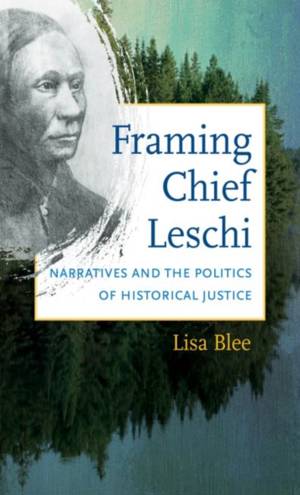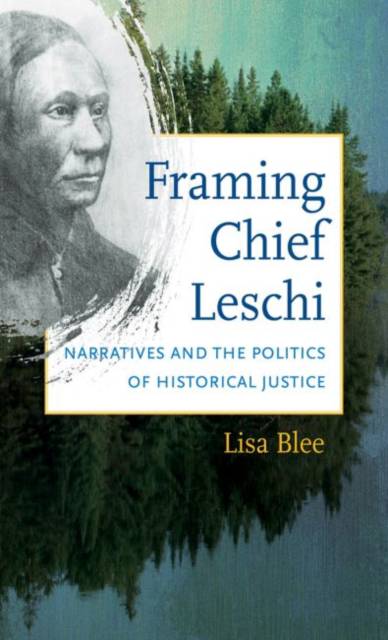
- Afhalen na 1 uur in een winkel met voorraad
- Gratis thuislevering in België vanaf € 30
- Ruim aanbod met 7 miljoen producten
- Afhalen na 1 uur in een winkel met voorraad
- Gratis thuislevering in België vanaf € 30
- Ruim aanbod met 7 miljoen producten
Zoeken
€ 53,95
+ 107 punten
Omschrijving
In 1855 in the South Puget Sound, war broke out between Washington settlers and Nisqually Indians. A party of militiamen traveling through Nisqually country was ambushed, and two men were shot from behind and fatally wounded. After the war, Chief Leschi, a Nisqually leader, was found guilty of murder by a jury of settlers and hanged in the territory's first judicial execution. But some 150 years later, in 2004, the Historical Court of Justice, a symbolic tribunal that convened in a Tacoma museum, reexamined Leschi's murder conviction and posthumously exonerated him. In Framing Chief Leschi, Lisa Blee uses this fascinating case to uncover the powerful, lasting implications of the United States' colonial past.
Though the Historical Court's verdict was celebrated by Nisqually people and many non-Indian citizens of Washington, Blee argues that the proceedings masked fundamental limits on justice for Indigenous people seeking self-determination. Underscoring critical questions about history and memory, Framing Chief Leschi challenges readers to consider whether liberal legal structures can accommodate competing narratives and account for the legacies of colonialism to promote social justice today.
Though the Historical Court's verdict was celebrated by Nisqually people and many non-Indian citizens of Washington, Blee argues that the proceedings masked fundamental limits on justice for Indigenous people seeking self-determination. Underscoring critical questions about history and memory, Framing Chief Leschi challenges readers to consider whether liberal legal structures can accommodate competing narratives and account for the legacies of colonialism to promote social justice today.
Specificaties
Betrokkenen
- Auteur(s):
- Uitgeverij:
Inhoud
- Aantal bladzijden:
- 320
- Taal:
- Engels
Eigenschappen
- Productcode (EAN):
- 9781469612843
- Verschijningsdatum:
- 17/03/2014
- Uitvoering:
- Paperback
- Formaat:
- Trade paperback (VS)
- Afmetingen:
- 161 mm x 235 mm
- Gewicht:
- 467 g

Alleen bij Standaard Boekhandel
+ 107 punten op je klantenkaart van Standaard Boekhandel
Beoordelingen
We publiceren alleen reviews die voldoen aan de voorwaarden voor reviews. Bekijk onze voorwaarden voor reviews.











